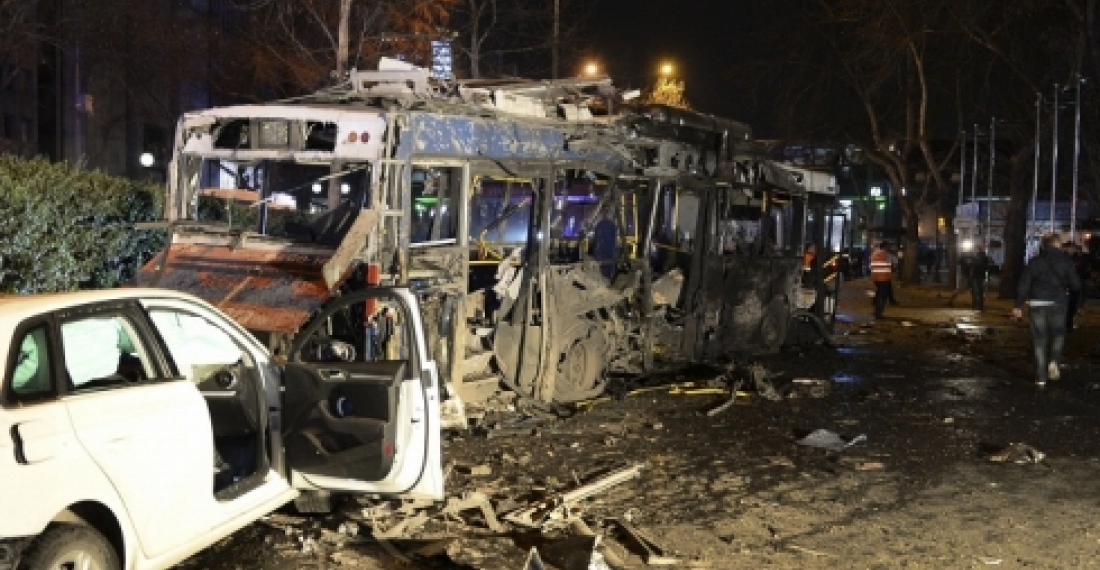At least 34 were killed while 125 wounded people were at hospitals after an explosion hit central Ankara on March 13. A bomb-laden car caused the blast, the announcement Interior Minister Efkan Ala said at the press-conference after a security meeting in Ankara.
30 people were killed at the scene of the incident while four others died on their way to the hospital. Some 19 people were in critical condition as seven were in surgery.
The blast took place where around 10 bus stops are located.
President Recep Tayyip Erdoğan, who was in Istanbul, was briefed by the Interior Minister Ala about the blast on the phone, according to presidency sources. Erdoğan condemned the attack in a written statement, adding that "Turkey has become a target of terror attacks due to the instabilities in the region."
Turkey will continue its determined fight against terrorism, he said.
"Terror attacks - which intend to target the integrity of Turkey, unity and solidarity of our people - do not diminish our will to fight against terror, but further boost it," he added.
This is the third major blast to hit the Turkish capital since October 2015.
Alleged Islamic State of Iraq and the Levant (ISIL) militants bombed a peace rally near the Ankara Railway Station in a major city thoroughfare and left at least 103 dead on Oct. 10, 2015.
Four months later, a suicide car bomb attack targeted military shuttles in the capital city on Feb. 17, killing at least 29 people and injuring 81 others.
Russian President Vladimir Putin has resolutely condemned a terrorist attack in Ankara and offer his condolences to the Turkish people over numerous human lives claimed in this attack, president's press secretary Dmitry Peskov said on Sunday.
"Vladimir Putin resolutely condemns the unhuman terrorist attack in Ankara," he said. "The Russian president is mourning with the Turkish people over the numerous human lives claimed in this attack by terrorists."
source: commonspace.eu with hurriyetdailynews.com






